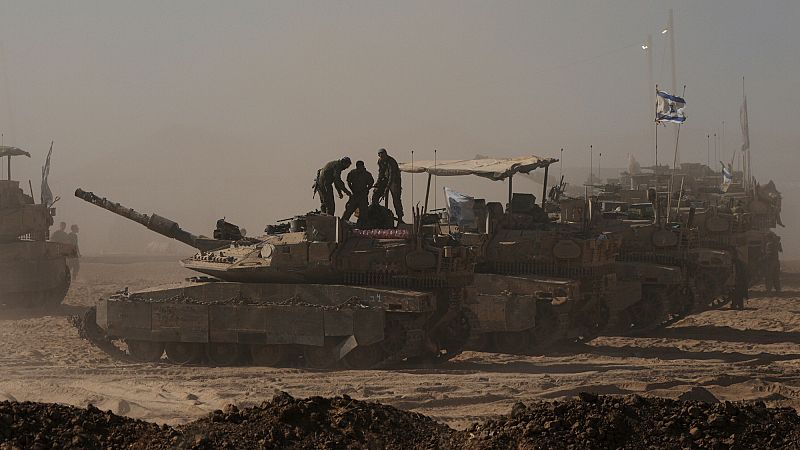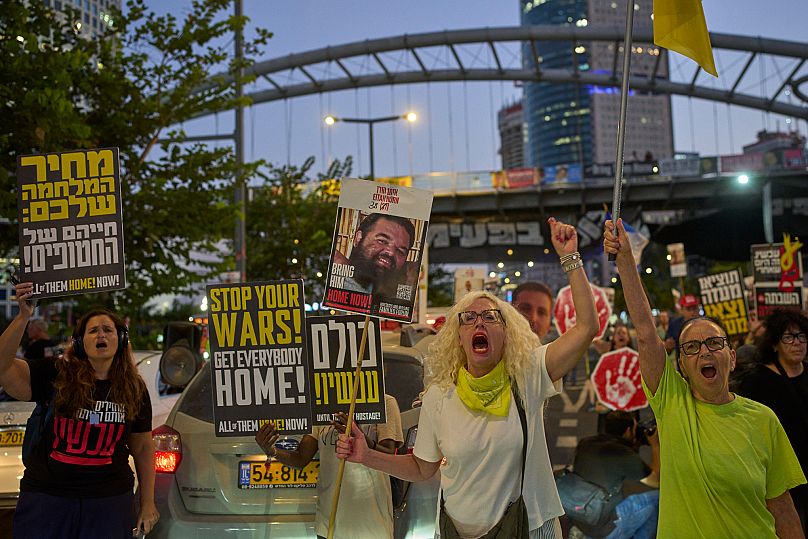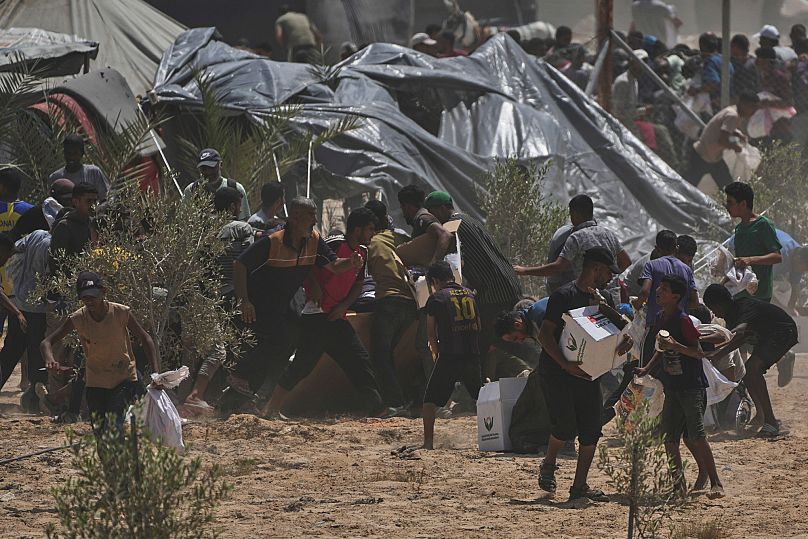Israel under pressure to respond to ceasefire proposal as strikes on Gaza continue

As strikes on Gaza continue, Israel says it is studying what Qatar has, in its role as mediator, described as a "positive response" by Hamas to a ceasefire proposal.
Spokesperson for Qatar's Foreign Ministry Majid al-Ansari declined to go into the details of the deal, but noted that it is "almost identical" to a proposal offered by US Envoy Steve Witkoff that Israel had accepted at an earlier stage.
“If this (ceasefire) proposal fails, the crisis will exacerbate,” al-Ansari told journalists, adding that Israel has yet to respond to it.
The deal would include a 60-day truce, the release of some of the hostages held by Hamas in return for hundreds of Palestinian prisoners, a flood of humanitarian aid into Gaza and talks on a lasting ceasefire.
But Israel has vowed to continue the war until all the hostages held in Gaza are returned and Hamas has disarmed.
Israeli Defence Minister Israel Katz said on Monday that fear of Israel plans to occupy Gaza city is bringing Hamas back to the negotiating table. “Only their fear that we seriously intend to occupy Gaza, facing this alternative they are willing to discuss,” he commented.
Earlier this month, Netanyahu announced plans to occupy Gaza City and other densely populated areas, which would potentially result in more casualties and further waves of mass displacement.
UN says trickle of aid insufficient to avert starvation
Meanwhile, hospitals in Gaza continue to be overwhelmed with bodies and injured people due to strikes by the Israeli military.
Across the territory, hospitals said they had received the bodies of 34 Palestinians killed Tuesday, including women and children. Nasser Hospital said an airstrike killed a mother, father and three children in their tent overnight in Muwasi, a camp for hundreds of thousands of civilians.
It added that nine people were killed while seeking aid in areas where UN convoys have been overwhelmed by looters and desperate crowds. Others were shot and killed while heading to sites run by the Gaza Humanitarian Foundation, or GHF, an Israeli-backed contractor.
A further two people were killed near a GHF site in central Gaza, according to Al-Awda Hospital.
Witnesses, health officials and the UN human rights office say Israeli forces have killed hundreds of people seeking aid from GHF sites and UN convoys since Israel eased a two-and-a-half month blockade on Gaza in May.
Members of the United Nations human rights and humanitarian affairs agencies warned on Tuesday that the trickle of aid entering Gaza is insufficient to avert widespread starvation.
"The risk of starvation is everywhere in Gaza. This is a direct result of the Israeli government's policy of blocking humanitarian aid,” Thameen Al-Kheetan, spokesperson at the UN Human Rights Office (OHCHR) told reporters in Geneva.
The UN said on Monday that hunger-related deaths continue to be reported in the Strip, including amongst children.
Today



